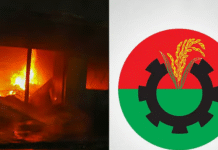The Election Commission will hardly be able to ensure a level-playing field during the parliamentary elections by only using the proposed election code of conduct as it largely depends on all-out cooperation from the polls-time government, experts say.
“It’s very difficult for the commission to execute the election code of conduct. It actually depends on the nature of the polls-time government whether the commission will be able to ensure the level-playing field using polls codes,” ex-election commissioner Brig Gen (retd) M Sakhawat Hossain told UNB.
The former commissioner also expressed his doubt over the execution of the code of conduct surpassing other laws, including the rules of business.
Dr Badiul Alam Majumder, secretary of Sushashaner Jonya Nagorik (Sujan), an NGO working on good governance and elections, told the agency that the commission will not be able to create a level-playing field if it does not have a strong will to do so.
The role of election-time government is highly important in maintaining the equal ground for all the candidates in the election due by January 24, Badiul Alam said.
“The incumbent commission, headed by Kazi Rakibuddin, has so far failed to show its goodwill. We saw the commission having failed to act against the violation of election laws and codes during the elections to the five city corporations early this year,” he said.
Sharmeen Murshid, Chief Executive officer of Brottee, an NGO working on election said, “The EC faces more challenges to create a level-playing field after relaxing some provisions of the RPO.”
The recent amendment to the Representation of the People Order (RPO) relaxed its some provisions, which should have been actually tighter, she told UNB.
The trio — Shakhawat, Majumder and Sharmjeen –, however, criticised the commission for defining ‘pre-election time’ as the time between announcement of election schedule and gazette publication on election results saying that the EC curtailed its own authority with this.
Dr Majumder said the EC sacrificed its authority over 90 days defining the pre-election time.
The EC curtailed the pre-election time from 90 days to 40-45 days to justify its failure to curb the current violation of polls codes after the countdown for the 10th general election started on October 27, he thought.
Sakhawat said that the commission defined only 40-45 days as pre-election time curtailing their time of 90 days which the constitution provides the EC.
He thinks that the definition of pre-election time goes against the spirit of the constitutional provision.
The article 123 (3) of the Constitution states, “A general election of the members of Parliament shall be held- (a) in the case of a dissolution by reason of the expiration of its term, within the period of ninety days preceding such dissolution; and (b) in the case of a dissolution otherwise than by reason of such expiration, within ninety days after such dissolution.”
However, Election Commissioner Mohammad Abu Hafiz defended the definition of pre-election time saying, “We’ve defined it in line with the RPO. It’ll in no way curtail the authority of the commission. The same definition is there in other countries, including India and Britain.”
He hoped all the stakeholders will abide by the code of the conduct saying, “Most people are law-abiding. We’ll execute the law against those who will violate rules.”
On Wednesday, the commission finalised the draft of the election code of conduct, barring ministers and MPs from availing themselves of state facilities in electioneering once the election schedule is announced.
In the proposed code, the ‘pre-election time’ has been defined as the time from announcement of election schedule to the date of gazette notification on election result.
As per the code, the very important persons (VIPs) among the government beneficiaries cannot participate in political programmes availing of state facilities from the announcement of the election schedule to the publication of the gazette notification.
The VIPs among the government beneficiaries are mentioned as the Prime Minister, the Speaker of Parliament, ministers, the Chief Whip, the Deputy Speaker, the Leader of the Opposition, Deputy Leader of the Opposition, state ministers, whips, deputy ministers and persons who hold equivalent posts, MPs and city corporation mayors.
The VIPs shall not be entitled to use the government staff, transport and other state facilities as well as staff of the semi-government and autonomous organisations and teachers and employees of the educational institutions during the electioneering.
The EC on Sunday uploaded the draft code on the EC’s website, www.ecs.govt.bd, seeking public opinions on it. All can place opinion within the next seven days.
After receiving the public opinion, the commission will finalise the parliamentary election code of conduct for political parties and candidate.
Source: UNBConnect










